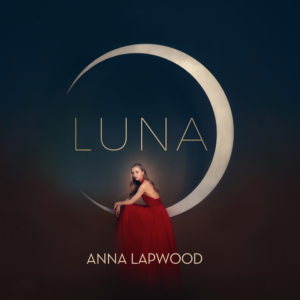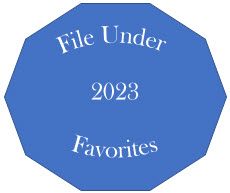Anna Lapwood – Luna (CD Review)
Luna
Anna Lapwood
Chapel Choir of Pembroke College, Cambridge
Sony Classical
At 27, organist Anna Lapwood is a rising star, performing at the BBC Proms and recently being given the RPS Gamechanger Award at The Royal Philharmonic Society Awards. For her latest Sony recording, Luna, Lapwood focuses on transcriptions, a venerable tradition in organ music. Most of the transcriptions are Lapwood’s, and they prove that she knows the possibilities of pipe organs inside and out. Alongside staples of the classical repertoire, the organist plays a number of pieces from popular and film music. The blend of old and new transcriptions, as well as original organ works, creates a varied and attractive program. It celebrates the night sky, in a many-hued rendering.
Max Richter is an electronic musician whose work focuses on post-minimal ostinatos. The transcription of his On the Nature of Daylight layers wordless chorus – the Chapel Choir of Pembroke College, Cambridge – on top of a chaconne in the organ in a sumptuous translation. Minimalism in general sounds great on pipe organ, and transcriptions of Philip Glass’s Mad Rush and Ludovico Einaudi’s Experience sound great here.
Film music also makes an impression. “Flying,” from James Newton Howard’s score for Peter Pan, is treated with contrasting stops and buoyant passagework combined with vigorous pedal motives. Dario Marinelli’s “Dawn,” from the score for Pride and Prejudice, employs the decorative chromaticism of the nineteenth century, making it an excellent choice to transcribe in the style of the French organ school.
In recent years, there has been a renaissance of the African-American Florence Price’s music. Her “Elf on a Moonbeam,” taken from the composer’s Short Organ Works, begins with incantatory arpeggios, gradually introducing an ascending melody accompanied by gospel-inflected chords. The central section contains puckish staccato harmonies, followed by a whole-tone transition that leads back to the gospel passage to conclude. Perhaps at some point Lapwood will record Price’s whole collection; Elf on a Moonbeam makes it seem promising.
“Grain Moon” by Olivia Belli is a mysterious, modally-inflected piece for which Lapwood employs the great variety of flute stops at her disposal. “Dreamland,” by Kristina Arakelyan, is filled with diaphanous textures and flowing arpeggios. Ghislaine Reece-Trapp’s “In Paradisum” contains several attractive melodies, and Lapwood distinguishes each with a different registration, providing a listening tour of the chapel organ at the Royal Hospital School, built in 1993 by Hill, Norman, and Beard.
My favorite piece on the recording is Ēriks Ešenvalds’s “Stars,” on which Lapwood again directs the Chapel Choir of Pembroke College, Cambridge. A work in the polychordal style, it contains stacked ascending entries and wide dynamic swells. The accompaniment is subtle, but includes a single-note refrain that distinguishes it from a merely supportive role. Ešenvalds is one of the most talented composers working today, and the choir does sterling work with the piece.
Popular classics, the Bach/Gounod Ave Maria, Chopin’s Nocturne No. 2 in E-flat Major, and, to close the album, a version of Debussy’s Clair de Lune, are all given sensitive performances. Lapwood is a gifted organist, and Arc also shares with us her talents as transcriber and choral conductor. It is one of my favorite recordings of 2023.
-Christian Carey

